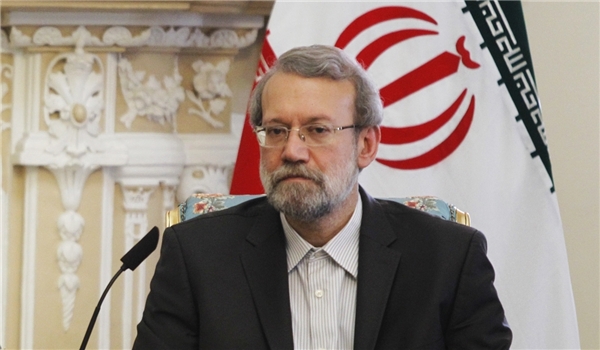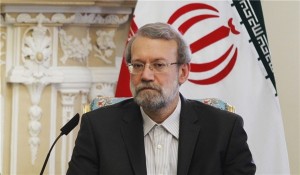
 Iranian Parliament Speaker Ali Larijani blasted the western powers for fomenting crisis in the region, and said Tehran has been trying hard to deepen agreement and understanding among the Iraqi groups.
Iranian Parliament Speaker Ali Larijani blasted the western powers for fomenting crisis in the region, and said Tehran has been trying hard to deepen agreement and understanding among the Iraqi groups.
“The West is creating crisis in the region and we have clear information that the US and other western states are involved in the creation of a part of the crises in the region,” Larijani said in Tehran on Tuesday, addressing the annual gathering of Iranian ambassadors and heads of Iran’s diplomatic missions abroad.
He referred to the political crisis in Iraq and the attacks launched by the Islamic State of Iraq and the Levant (ISIL) terrorist group on the Iraqi people, and said, “The Islamic Republic of Iran has made strenuous efforts to prevent the spread of the terrorists’ presence in Iraq and (the Grand) Ayatollah (Ali) Sistani has played a highly influential role in this regard.”
“In the political field, Iran has also striven hard to form an agreement in Iraq,” Larijani said, and continued, “The Shiite coalition introduced the prime minister yesterday, and this will create stability in Iraq,” Larijani said.
He referred to the United States’ recent attacks on the ISIL, and questioned the reason behind Washington’s silence on the killing of Christians, Sunnis, Druze and Alawi people in Iraq in the past.
In relevant remarks on Sunday, Larijani cautioned that the US bombing of ISIL centers in Iraq in recent days was aimed at diverting attention of the world public opinion from the Israeli crimes in Gaza, but said the US will fail in achieving its desired results from this operation and had better ask for Hollywood’s help.
“The reality is that the US administration is neither a supporter of the Shiites, Sunnis, Christian, Yazidis, Kurds or Arabs nor an advocate of human rights as it has a too dark record to be like this,” Larijani said, addressing the lawmakers at an open session of the parliament here in Tehran.
“The US wants to wash off blood from its hands which have been stained in the inhumane catastrophes that it has caused in Palestine, Syria, Lebanon, Iraq and Iran by sending a number of fighter jets to bring aids or target the terrorists, but it is just a dream which will never come true,” he added.
Larijani advised US President Barack Obama to find another way to divert attention of the public opinion from the crimes committed by the Zionists in Palestine, and said, “Maybe Hollywood can be of more aid to the US (administration).”







